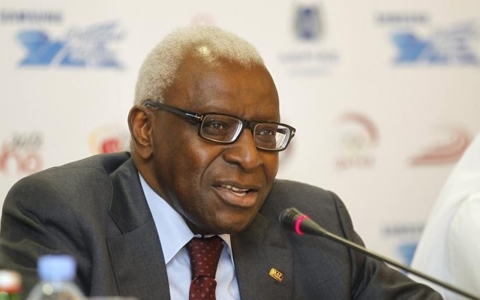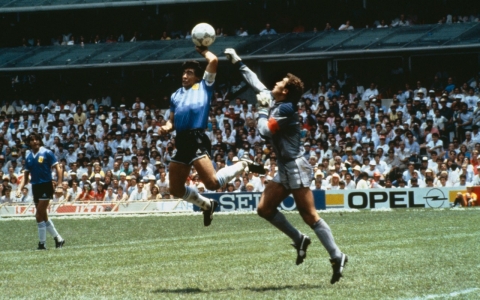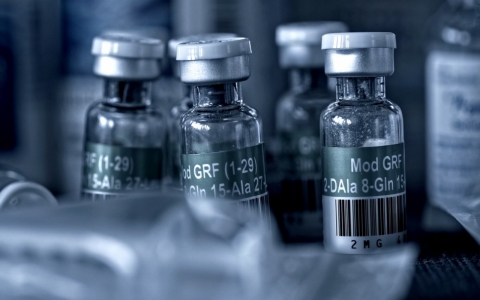Inside a hotel room in Austin, Texas, a pharmacist advises a professional athlete on taking performance-enhancing drugs.
“One anabolic, and I can give you something to use right now, is this Delta 2 stuff. It’s a steroid. There’s a bunch of football players who take this,” he tells Liam Collins, a British hurdler reporting undercover.
In another conversation, a Vancouver pharmacist poses a question to the same athlete.
“Have I doped people? Oh yeah. And no one’s got caught because the system is so easy to beat. That’s the sad fact.”
Later, a Naturopath doctor explains how he would destroy medical records if investigators came looking for them.
“I can just document everything not in this chart but on my own chart. And if somebody ever comes sniffing for it, it’s very easy to just delete and say no, this is the real chart. If say, WADA [World Anti-Doping Agency] comes sniffing around.”
Normally these conversations take place behind closed doors, but a new investigation by Al Jazeera is bringing them to light. Liam Collins, working on behalf of Al Jazeera’s Investigative Unit, spent six months undercover investigating the murky world of performance-enhancing drugs — what athletes refer to as “the dark side.”
“For me, it was an opportunity to be the guy, to go undercover, and make a change,” said Collins. At 37, he competes as a hurdler at an international level. For the investigation he claimed that he was making one last push for the Rio Olympics and was willing to do “whatever it takes” to get there.
The investigation has exposed the crucial role of pharmacists and doctors in creating and prescribing programs of performance-enhancing drugs designed to cheat the testing system. It also raises questions about some well-known athletes in American football and baseball who the medical professionals claim to work with.
The athletes and medical professionals who responded to requests for comment denied any wrongdoing. This includes Peyton Manning, a football player for the Denver Broncos, whose wife, one pharmacist alleged, was supplied with human growth hormone.
That pharmacist, Charlie Sly, has disavowed his statements to Collins that were caught on hidden camera. In a follow-up email, he said that when he spoke with Collins “was in no state of mind to be making any coherent statements as I was grieving the death of my fiancée.”
Manning in an interview Sunday on ESPN emphatically denied that he has ever used performance-enhancing drugs. He also said he is “sick” that his wife, Ashley, “is being brought into this."
Regarding his treatment in 2011 for a severe neck injury, the Denver Broncos player said: “I busted my butt to get healthy.
“Time and hard work was my best medicine,” Manning said. “It stings me [that] whoever this guy is says that I cut corners, I broke rules to get healthy.”
Manning said he used a hyperbaric chamber, received 35 days of treatment to enhance blood flow in his muscles, and had nutrient therapies. “All under coach authorization,” he said. “Anything else this guy is insinuating is complete garbage.”
In a statement, the Broncos said, “Knowing Peyton Manning and everything he stands for, the Denver Broncos support him 100 percent. These are false claims made to Al Jazeera, and we don’t believe the report.”
Dr. Dale Guyer, the head of the Guyer Institute in Indiana, where Manning received treatments, also denied the allegations in a statement to sports website Bleacher Report on Sunday.
Sly also named baseball players Ryan Zimmerman of the Washington Nationals and Ryan Howard of the Philadelphia Phillies, raising questions about whether they use the hormone supplement Delta 2. Both have denied the allegations.
In a statement to the Philadelphia Inquirer on Sunday, Zimmerman and Howard's lawyer William Burck said, “The extraordinarily reckless claims made against our clients in this report are completely false and rely on a source who has already recanted his claims.” The Nationals also issued a statement in support of Zimmerman.
The Phillies subsequently issued a statement supporting Howard, calling him “an extremely well respected member of our team and an outstanding contributor to our community.” The team said it will “fully cooperate with any investigation conducted by Major League Baseball and will refer all further questions to them concerning the Al Jazeera report.”
Correction: An earlier version of this article reported on an allegation about possible links between Ryan Zimmerman and Ryan Howard and human growth hormone. The substance alleged was Delta 2, not HGH.

Olympic medals could be affected if allegations proved; officials say reports may be linked to IAAF elections

Ruling on Dutee Chand appeal could hurt openness and accessibility of sports

Experts, players and officials weigh in on cultural and social implications of bending rules, doping and more

Al Jazeera’s investigation into questions of sports doping is sparking swift reaction from NFL circles






Error
Sorry, your comment was not saved due to a technical problem. Please try again later or using a different browser.